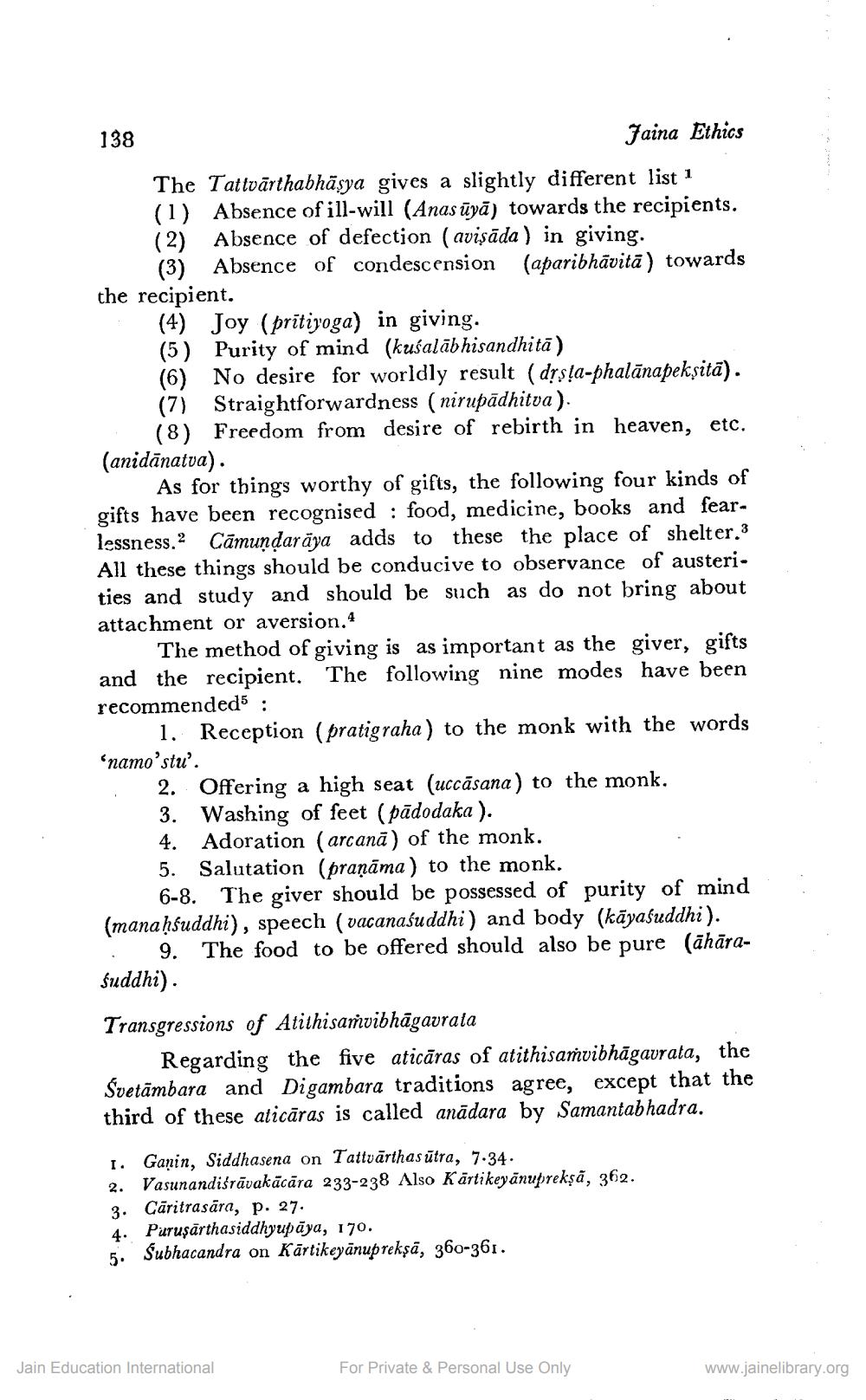________________
138
Jaina Ethics
The Tattvarthabhāṣya gives a slightly different list 1 (1) Absence of ill-will (Anasuya) towards the recipients. (2) Absence of defection (avisāda) in giving.
(3) Absence of condescension
(aparibhāvitā) towards
the recipient.
(4) Joy (pritiyoga) in giving.
(5) Purity of mind (kusalabhisandhita)
(6) No desire for worldly result (dṛṣṭa-phalanapekṣitā). Straightforwardness (nirupādhitva).
(7)
(8) Freedom from desire of rebirth in heaven, etc. (anidānatva).
As for things worthy of gifts, the following four kinds of gifts have been recognised: food, medicine, books and fearlessness.2 Camunḍaraya adds to these the place of shelter.3 All these things should be conducive to observance of austerities and study and should be such as do not bring about attachment or aversion.4
The method of giving is as important as the giver, gifts and the recipient. The following nine modes have been recommended5 :
1. Reception (pratigraha) to the monk with the words 'namo'stu'.
2. Offering a high seat (uccāsana) to the monk.
3. Washing of feet (padodaka ).
4. Adoration (arcana) of the monk.
5. Salutation (praṇāma) to the monk.
6-8. The giver should be possessed of purity of mind (manaḥsuddhi), speech (vacanaśuddhi) and body (kayasuddhi).
9. The food to be offered should also be pure (āhāraSuddhi).
Transgressions of Atithisamvibhāgavrata
Regarding the five aticāras of atithisamvibhāgavrata, the Svetämbara and Digambara traditions agree, except that the third of these aticāras is called anādara by Samantabhadra.
I. Ganin, Siddhasena on Tattvarthasutra, 7.34.
2.
Vasunandiśravakācāra 233-238 Also Kartikeyanuprekṣā, 362.
3. Caritrasāra, p. 27.
4. Puruşarthasiddhyupaya, 170.
5.
Subhacandra on Kartikeyanuprekṣā, 360-361.
Jain Education International
For Private & Personal Use Only
www.jainelibrary.org




